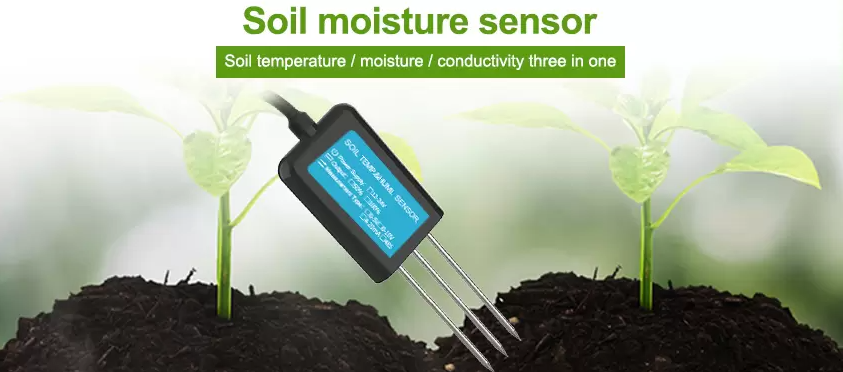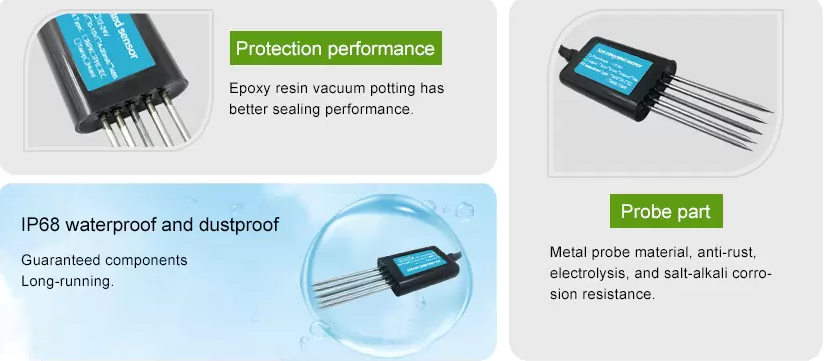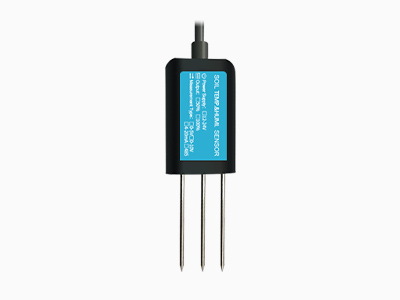Soil moisture sensors is a tool for measuring and monitoring soil moisture content. Enables farmers to optimize irrigation and conserve water. This paper aims to explore the significance of soil moisture sensor, their technological features, and their implications for agricultural productivity and water conservation.
Significance of Soil Moisture Sensors

Soil moisture sensor play a crucial role in modern agriculture by providing accurate and real-time information on moisture content. This information is essential for optimizing irrigation practices, preventing water stress in crops, and minimizing water usage. By integrating soil moisture sensors into agricultural systems, farmers can make informed decisions that enhance crop yields, conserve water resources, and promote sustainable land management practices.
Technological Features of Soil Moisture Sensors

Soil moisture sensors utilize various technologies to measure soil moisture content, such as capacitance sensors, tensiometers, and time domain reflectometry (TDR). Capacitance sensors measure soil moisture by detecting changes in electrical capacitance caused by the presence of water. Tensiometers measure soil moisture by monitoring the tension of water in the soil. TDR sensors measure soil moisture by analyzing the travel time of electromagnetic pulses through the soil.
In addition, soil moisture sensors can be paired with wireless communication systems and data platforms; Allows devices to monitor and remotely access soil moisture data in real time. This integration enables farmers to make timely and data-driven decisions regarding irrigation scheduling, crop management, and water conservation strategies.
Implications for Agricultural Productivity and Water Conservation
The use of soil moisture sensor has significant implications for agricultural productivity and water conservation. By providing accurate and up-to-date information on soil moisture content, soil moisture probe enable farmers to use water more efficiently, reducing the risk of water stress and improving the resilience of agricultural systems to climate change.

In addition, soil moisture sensor can support the development of soil conservation measures. By providing soil moisture, soil moisture sensor can optimize soil fertility and reduce the risk of soil erosion and nutrient depletion.
The integration of soil moisture probe into precision agriculture systems allows for targeted and site-specific irrigation, optimizing water usage and reducing the environmental impact of excessive water application. This approach not only enhances crop productivity but also contributes to water conservation and sustainable agricultural practices.
Implications for Environmental Sustainability
In addition to its impact on agricultural productivity, soil moisture detection contributes to environmental sustainability through effective water management and soil conservation. By optimizing irrigation practices with soil moisture data, farmers can reduce water use and minimize the risk of waterlogging.
In addition, soil moisture sensor support land management practices such as soil restoration and ecosystem protection. By maintaining optimal soil moisture levels, farmers can contribute to preserving biodiversity and protecting natural habitats.
Conclusion
In conclusion, soil moisture sensor hold great promise for enhancing agricultural productivity and water conservation. Sensor technology, data analytics, and precision agriculture strategies offer new opportunities to understand soil water dynamics and address water-related challenges. By leveraging these technologies, we can make informed decisions and implement proactive measures. We must continue to harness the potential of soil moisture sensor to promote food security, water conservation and environmental sustainability.
